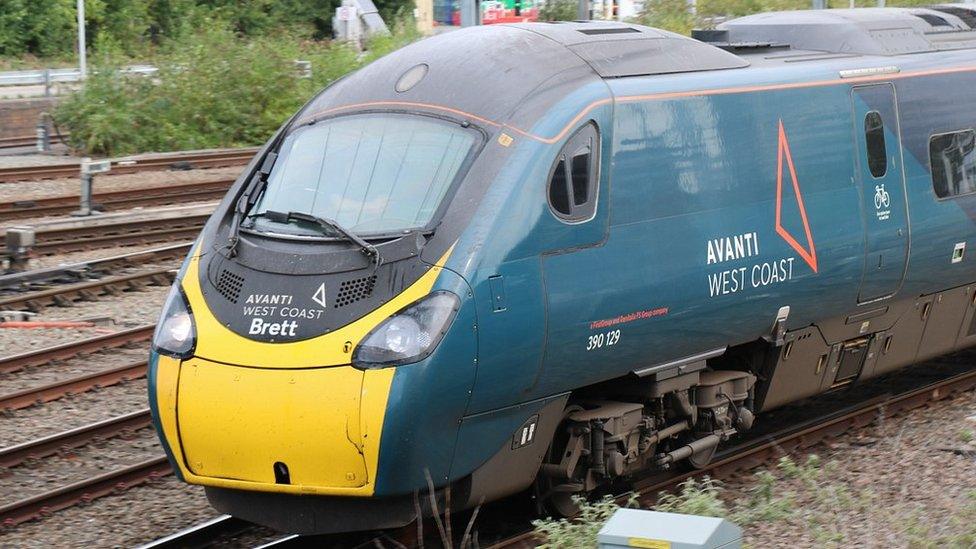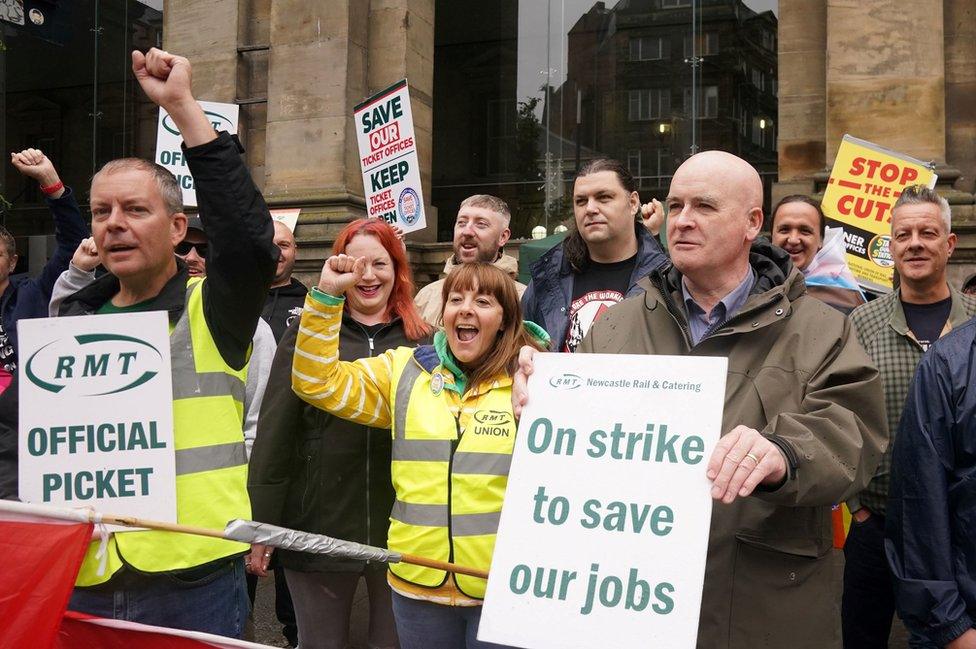Trains between Scotland and England disrupted by RMT strike
- Published

Avanti West Coast's managing director stepped down amid the backlash over timetable cuts
Train passengers are being disrupted on cross-border services as rail workers strike as part of a long-running dispute over pay, jobs and conditions.
Members of the Rail, Maritime and Transport union (RMT) walked out, forcing 14 train operators to amend or cancel services across the UK.
The strike does not involve ScotRail and the operator said its weekend timetable will operate as normal.
The UK government said it had made improved offers on pay and reform.
CrossCountry, TransPennine Express, Avanti West Coast and LNER have all reported disruption on services between Scotland and England and a reduced timetable.
Passengers are urged to check their full journeys before embarking.
Services are also being impacted because of a ban on overtime by train drivers in the Aslef union.
The deadlocked dispute is being made worse by a bitter row over controversial plans to close most railway ticket offices.
Mick Hogg, the RMT's organiser for Scotland, told BBC Radio's Good Morning Scotland programme his members were seeking a "fair pay rise".
Speaking from a picket line at Edinburgh Waverley station, he said: "We do still have public support. If you take the ticket offices, for example, if you speak to members of the public, what they want is to see staff at station, they want to see booking offices in order to help and assist people who are needing support.
"Particularly, vulnerable people and disabled people who actually want help and support when using Scotland's trains and train services south of the border."

RMT general secretary Mick Lynch joined a picket line in Newcastle on Saturday
The Rail Delivery Group (RDG) said staff would be moved from behind screens and on to station concourses, but unions believe more than 2,000 jobs will be axed.
The RDG said that since the first RMT strike in June 2022, industrial action had cost the sector around £620m.
The union held a strike on Thursday and will stage another walkout on 29 July.
RMT general secretary Mick Lynch said striking rail workers were still waiting for an invitation back to the negotiating table.
He added: "We've been on strike for over a year, this campaign's probably been running for two years.
"The issues are the same. They're attacking our jobs. They're making redundancies. They're closing services."
An RDG spokesperson apologised for the inconvenience.
They said: "The rail strikes called by the RMT union and the overtime ban by Aslef will undoubtedly cause some disruption, affecting not only the daily commute of our passengers but also disrupting the plans of families during the summer holidays.
"While we are doing all we can to keep trains running, unfortunately there will be reduced services between Monday 17 July and Saturday 29 July, so our advice is to check before you travel."
A Department for Transport spokesperson said: "The government has met the rail unions, listened to them and facilitated improved offers on pay and reform. The union leaders should put these fair and reasonable offers to their members so this dispute can be resolved."
Related topics
- Published9 May 2024
